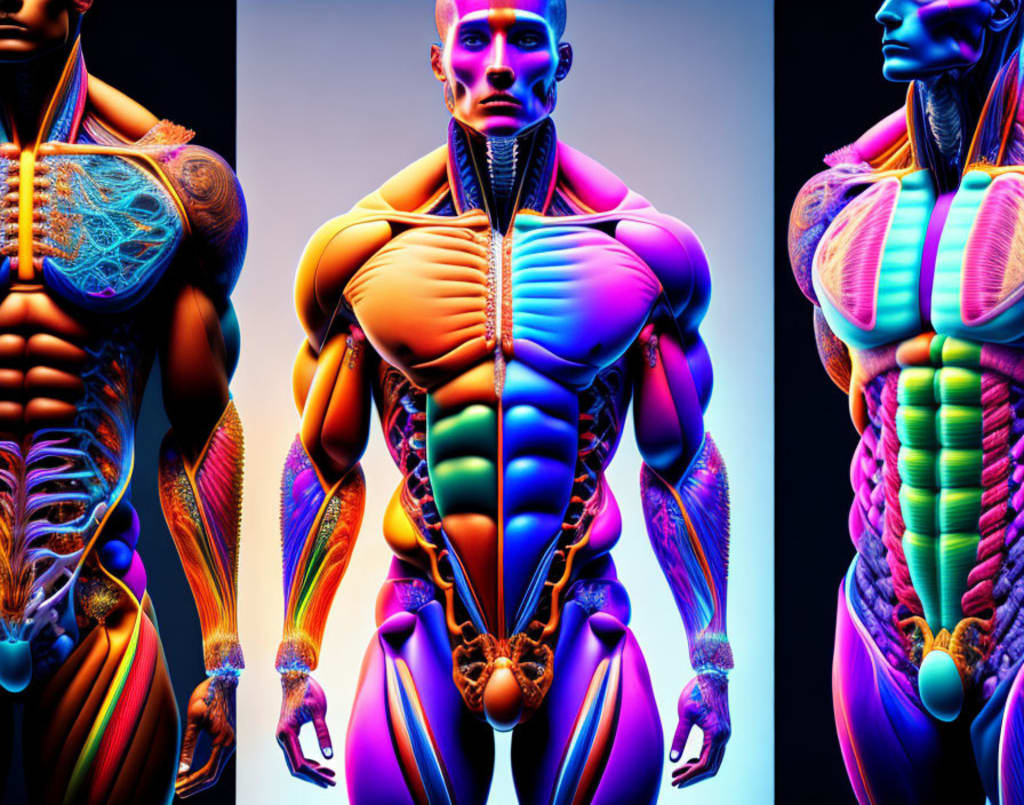
The human body contains enough iron to make a small nail.
The strongest muscle in the human body is the masseter, which is responsible for chewing.
Humans shed about 600,000 particles of skin every hour.
The average human body contains enough carbon to fill nine lead pencils.
The brain operates on about the same amount of power as a 10-watt light bulb.
Humans are the only animals that produce emotional tears.
The human nose can remember 50,000 different scents.
The human heart creates enough pressure to squirt blood up to 30 feet.
Humans are taller in the morning than in the evening due to spinal compression.
The human body has enough fat to produce seven bars of soap.
Humans are born with 300 bones, but by adulthood, we have only 206.
The human eye can distinguish approximately 10 million different colours.
Sneezes can travel at speeds up to 100 miles per hour.
Your taste buds are replaced every 10 days.
The human body contains enough sulfur to kill all fleas on an average dog.
The liver is the only organ that can regenerate itself.
The length of all the blood vessels in the human body would circle the Earth four times.
Humans blink about 17 times per minute.
The human skeleton accounts for about 14% of our body weight.
The average person produces about 25,000 quarts of saliva in a lifetime.
Your hair grows faster at night than during the day.
The human body has enough phosphorus to make 2,200 match heads.
The left lung is smaller than the right lung to accommodate space for the heart.
Humans are the only animals that blush.
The average person will walk the equivalent of three times around the Earth in their lifetime.
The human body has enough water to fill a ten-gallon tank.
The cornea is the only part of the body without a blood supply.
The human stomach produces a new layer of mucus every two weeks to prevent self-digestion.
The average human sneeze travels at 100 miles per hour.
Humans have unique fingerprint patterns, but identical twins do not share the same fingerprints.
Your feet contain a quarter of all the bones in your body.
You lose about 50-100 hairs from your head every day.
The surface area of the human lungs is roughly the size of a tennis court.
Your skin is the largest organ in your body.
Human bones are ounce for ounce, stronger than steel.
Your tongue has taste buds for sweet, sour, bitter, and salty flavours, but also for umami.
Human bones are constantly being broken down and rebuilt.
The human brain is about 75% water.
Humans can distinguish between over a trillion different smells.
The skin on your lips is only 3 to 4 cells thick.
The small intestine is approximately 22 feet long.
Humans can hear frequencies as low as 20 hertz and as high as 20,000 hertz.
The human eye can process about 36,000 bits of information every hour.
The human body contains enough phosphorus to fill 5,000 matchboxes.
Human beings are the only animals capable of drawing straight lines.
You use 200 muscles to take a single step.
The average person produces enough saliva in their lifetime to fill two swimming pools.
Humans are the only animals that have chins.
The human body can survive for weeks without food but only days without water.
The average person blinks approximately 4.2 million times a year.
Humans are the only animals that can willingly delay sleep.
The average person produces about half a litre of flatulence per day.
Your stomach lining replaces itself every three to four days.
The average person's heart will beat about 2.5 billion times in their lifetime.
Humans have a unique pattern of veins in their fingerprints.
The human body produces enough heat in 30 minutes to boil half a gallon of water.
Your fingernails grow four times faster than your toenails.
Humans are the only animals with chins.
The human body contains enough calcium to make 50,000 teeth.
The average person will spend six months of their life waiting for red lights to turn green.
Human bones are 31 times stronger than concrete.
The human brain is capable of storing up to 2.5 petabytes of information.
The human body can produce up to 25 million new cells every second.
The human body contains enough water to fill a 10-gallon barrel.
Humans can distinguish between more shades of green than any other colour.
The human heart beats around 100,000 times per day.
Your skin sheds about 30,000 to 40,000 dead cells every minute.
Humans can hold their breath longer underwater than any other primate.
The average person spends about six months of their life on the toilet.
Your brain generates enough energy to power a light bulb.
Humans have a unique set of fingerprints, tongue prints, and ear prints.
The human body contains enough sulfur to kill all the fleas on an average dog.
Your nose and ears continue to grow throughout your entire life.
Your body produces about one litre of mucus each day.
The average person's hair grows about half an inch per month.
Humans have a protein called opsin that allows us to see in colour.
Your ears and nose never stop growing, but your eyes stay the same size from birth.
The human body contains enough potassium to explode a toy cannon.
Your body gives off enough heat in 30 minutes to boil a half-gallon of water.
Humans have about 100,000 hairs on their heads.
Your heart pumps about 2,000 gallons of blood every day.
Humans can focus on objects both near and far thanks to the lens in our eyes.
Humans have a unique set of fingerprints that are never duplicated.
The human body contains enough blood vessels to stretch over 60,000 miles.
Humans have a unique set of vocal cords that allow for complex speech.
Your body is capable of producing 25 million new cells every second.
The human eye can detect candlelight from up to 1.6 miles away.
Humans have about 9,000 taste buds on their tongues.
Your body can produce enough heat in 30 minutes to raise the temperature of a gallon of water by one degree.
Humans can focus on objects at varying distances due to the flexibility of the lens in our eyes.
Your body produces about 1-2 pints of sweat per day.
Humans have a unique set of fingerprints that develop before birth and remain the same throughout life.
The human body contains enough iron to make a small nail.
Your body can generate enough electricity to power a small light bulb.
Humans have a unique set of vocal cords that allow for the production of a wide range of sounds and speech.
About the Creator
Manik Roy
Writer | Photographer | Handwriting Expert | AI Artist






Comments (1)
great information!Thanks for sharing!